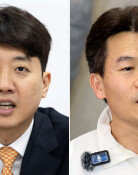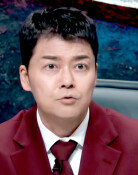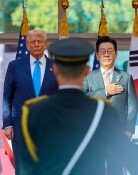Success of Yoon's second cabinet depends on personnel reform
Success of Yoon's second cabinet depends on personnel reform
Posted November. 30, 2023 08:00,
Updated November. 30, 2023 08:00
South Korean President Yoon Suk Yeol is planning to perform reforms for the presidential office and the cabinet next week. Five of six chief secretaries of the presidential office, including those in charge of state affairs, public relations, and civil society, will be replaced with some organizational shift on the way. About 10 of 19 ministers within the cabinet will be replaced. The cabinet reform is likely to take place gradually based on the narrowing down candidates.
Most of those to be replaced during the presidential office and cabinet reforms are those running for the general elections in April next year, which means the reforms are practically for the general elections. As a result, the details about those running for the general elections are in the spotlight while those who will replace them are out of attention. However, it should be kept in mind that the second presidential office and cabinet of the Yoon administration will be launched following the reforms, which is why personnel reforms to showcase new sides of the administration are needed.
As several former prosecutors were appointed to important positions in the presidential office and the administration following the election of the former public prosecutor general as the president, there is criticism for the ‘prosecution republic.’ The fact that a majority of key figures running for public offices are men in their 50s who graduated from Seoul National University, which is the university attended by the president, is also being pointed out. Such a personnel bias is one of the major reasons why the Yoon administration still has an approval rating under 50 percent even after it was launched one and a half years ago. It should make sure that the upcoming personnel reform does not face such criticism.
Personnel reforms should depart from past practices. There should be a new shift of looking for figures unrelated to the president in order to enable creative policy development and proposal beyond inertia. The talent pool should be broad and bold. In order to reform the atmosphere in the cabinet, a bold movement of appointing ‘young ministers’ who are appealing to women and young people should be considered. A bold personnel reform should be the priming water for government reform.
Personnel verification of those who will take positions should be thoroughly conducted. The opposition party’s rigorous verification attempts should not simply be reckless political offenses. If there is unnecessary controversy during personnel hearings, such as in the case of Kim Haeng, a former candidate for the minister of Gender Equality and Family who was brought down during the hearing, the impact of the personnel reforms will be lessened. While the candidates' policy implementation capabilities and leadership should be considered as criteria for personnel appointment, what the public wants should also be considered.







